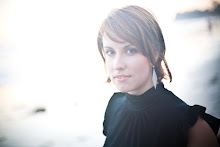After the particularly gnarly teenage heartbreak that was my breakup with Alex, I subconsciously broke up with Buddhism as well. Or so I thought. I discovered after months of near obsession with the Beat writers of the 1960s that they were heavily influenced by Eastern thought and practice; they were the Dharma-bums, as Kerouac put it. Turns out that most writers or artists who I am fascinated and inspired by have Eastern influence: Leonard Cohen spent almost 10 years in a Zen Buddhist centre, T.S. Eliot studied Hinduism and other eastern philosophies at great length, and Thomas Merton fully incorporated a study of eastern mysticism, especially Zen, into his Christian faith and prayer life.
Last fall, Elizabeth Hess introduced me to the Tao Te Ching, or Book of the Way. It a collection of short chapters, or poems, that are central to Taoist thought. I used the book to explicate an Eliot poem, but as I studied it for my essay, the bits of Eastern wisdom that seemed so paradoxical at first read began to churn in my head at all times of the day. Ask anyone on England Semester: for about a month I was Taoist Girl. Every conversation, every class discussion, every church service, every walk outside--all I could do was find connections with Taoist thought and life. After returning from England Semester, I bought my own book of the Tao Te Ching as well as several other books on the subject to begin fleshing out my uneducated interest. I'll also be taking a class in the fall on Buddhism, but since it a Westmont Religious Studies class, it is about where Christianity and Buddhism meet and where they depart.
I've thought quite a bit on that point, both theoretically and personally. Personally, I'm hyper aware of the balance between my Christian faith and my Buddhist "studies." To clarify- whenever I pick up the i Ching to learn about Chinese divination and leave my Bible sitting on the shelf (or in my suitcase, rather), I feel somewhat conflicted. But on the other hand, I feel my own faith being strengthened and clarified by studying another. Buddhism, from what I have learned so far, does not contradict Christianity. Suzuki once said, "Zen teaches nothing; it merely enables us to wake up and become aware. It does not teach, it points." What is true in Buddhism is also true in Christianity, if not as central for most Christian's faith practices. Buddhism is about compassion, peace, surrendering ego and finding emptiness to be filled with God. What I have found most appealing is the Eastern embrace of paradox and "unknowing." Faith is not just a "right" doctrine and regular church attendance, it is a direct experience of God in our deepest self, whether found in a teaching, a walk outside, or a piece of art. In studying Buddhism, I also realize what is so profoundly different about Christianity. A knowable Savior, grace, and forgiveness. Words that get tossed around so often in sermons that we forget what they really mean. Without encountering other faiths, how do we know what we have?
Bishop Ambrose said in the fourth century that "all that is true, by whomever it has been said, is from the Holy Spirit". I've heard the same gist said by several Westmont professors: "All truth is God's truth." I encourage everyone to take a trip to the spirituality section at your local bookstore, step on to someone else's prayer mat, and empty yourself to find what is true.
